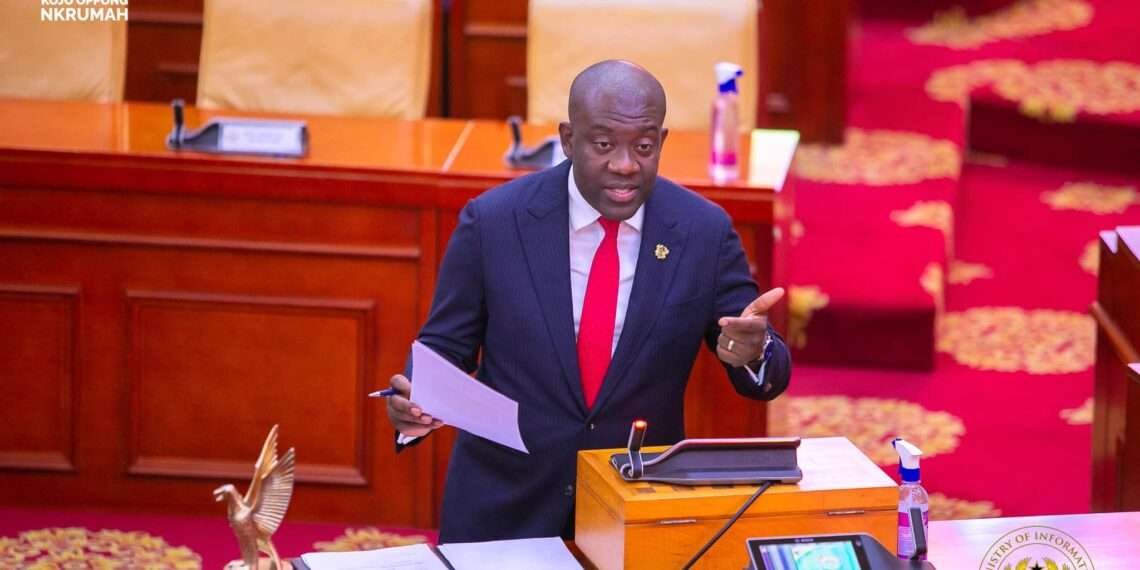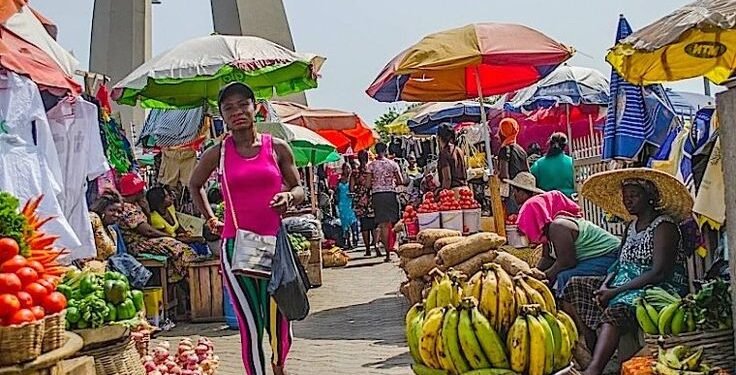On the floor of Parliament, Hon. Kojo Oppong Nkrumah, the Member of Parliament for Ofoase-Ayirebi Constituency, urged African leaders to realign themselves with the Continent’s reparation agenda in development.
His statement comes at a time when African leaders are gathering for the 38th Ordinary Session of the Assembly of the African Union (AU) as the Union delivered a statement to Ghana’s Parliament before its gathering where discussions on reparations for the transatlantic slave trade are expected to take center stage.
To this effect, while acknowledging the historical injustices of slavery, Hon. Nkrumah raised critical questions about the broader implications of reparations and emphasized the need for African leaders to focus on immediate, practical solutions to the continent’s challenges.
Hon. Nkrumah began his statement by extending good wishes to African leaders attending the AU, saying;
“As African leaders gather for the thirty-eighth ordinary session of the Assembly of the African Union, we send to them our best wishes to take the right decisions that will support the continent.”
Hon. Kojo Oppong Nkrumah MP for Ofoase-Ayirebi Constituency
While not objecting to the idea of reparations from Western countries involved in the transatlantic slave trade, Hon. Nkrumah argued that the subject requires deeper examination from an African perspective. He pointed;
“The Transatlantic slave trade was not end-to-end executed by people of Western descent only. Africans participated in it. In fact, if you go to Elmina Castle, you will find recognition of the participation of Africans in the transatlantic slave trade. You also find from our history how we indulged in intertribal slavery even before the white man came here.”
“So, if today we are looking to have a conversation about reparations as the way to cure the injustices, it raises questions about whether we are also going to consider paying intertribal reparations.”
Hon. Kojo Oppong Nkrumah MP for Ofoase-Ayirebi Constituency
Prioritizing African Financial Institutions
He referenced ongoing AU discussions about creating such institutions and stressed the need to prioritize their establishment. He stated;
“For example, the African Union has been talking about setting up strong African financial institutions to mobilize resources to help the advancement of Africa. My view is that it is a more practical and near-immediate way to mobilize resources to help advance the African cause as against the subject of reparations.”
Hon. Kojo Oppong Nkrumah MP for Ofoase-Ayirebi Constituency

Hon. Nkrumah also pointed out that while much effort has been put into establishing the African Continental Free Trade Area (AfCFTA), actual trade within the framework remains limited. He called on African leaders to focus on ensuring that the free trade agreement becomes operational and impactful.
Another key point in Hon. Nkrumah’s statement was the importance of increasing South-South trade to empower African economies. He noted that;
“If African leaders are going to spend time talking about reparations from the West for their participation in the slave trade, it will be good for them to also include in this conversation how they can fast-track efforts to open up our borders and open up things like South-South trade.”
Hon. Kojo Oppong Nkrumah MP for Ofoase-Ayirebi Constituency
Hon. Nkrumah also addressed a controversial yet crucial aspect of the debate—Africa’s own role in the transatlantic slave trade. He reminded;
“We were doing this very evil act among ourselves. We participated in it because a white man didn’t go into the villages to go and pick Africans and put them on the boats. Africans participated in picking black people up and selling them to the white man.”
Hon. Kojo Oppong Nkrumah MP for Ofoase-Ayirebi Constituency
A Call for Practical Action
In conclusion, Hon. Nkrumah emphasized that while the conversation on reparations is important, African leaders should not lose sight of practical solutions that can provide immediate justice and development for the continent.
He called on them to prioritize economic growth, financial independence, and trade facilitation over what he described as a theoretical discussion on reparations.
With this statement, Hon. Nkrumah made a strong case for African self-reliance, regional economic cooperation, and financial independence as more sustainable ways to address historical injustices and advance the continent’s development.























